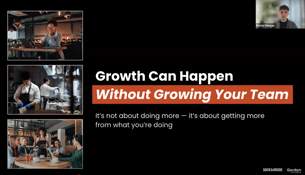For busy restaurateurs, the idea of managing a dedicated website and a Facebook page while, you know, actually running a successful restaurant, can seem daunting, and even redundant. But for many concepts, it is worth having both. Here's why.
Benefits of Facebook for restaurants
Interact with customers and improve exposure: As anyone who has used the social network will tell you, Facebook makes it easy to interact with people and in the case of restaurant owner’s case, that means customers. The truth of the matter is, during the first quarter of 2020, Facebook reported over 1.73 billion daily active users, according to Statista.
Market your business: Setting up a Facebook page is free, which means posting specials, event updates, and other marketing news only costs you the labor to sit down and the computer and write it. Build restaurant loyalty: A Facebook page gives your most loyal customers a place to sing your restaurant’s praises and nothing is more trusted than word of mouth recommendations. Encouraging sharing and the use of hashtags can help build a sense of community around your establishment.
Increase revenue: Who doesn’t like the sound of that? With Facebook’s online ordering platform “Order Food” allows proprietors to make sales via the social network.
Control costs: Facebook pages are free to create and operate, as opposed to the nominal recurring costs of owning a web domain and operating a website. That said, keep in mind that Facebook limits the organic reach a business page can achieve without paying for ads on the platform.
If you're looking for more tips on how to optimize your restaurant's social media presence, be sure to check out our comprehensive social media marketing guide. (And please, whatever you do, don't fall into a rut of simply posting your menu updates to Facebook!)
What a website can do for your restaurant that Facebook can't
Control of image: A website is an extension of your restaurant’s brand. Unlike Facebook, where you’re at the mercy of the site’s design structure, you can make a website your own and give customers a taste of the environment you’re offering.
Increase search rankings: If you’re employing SEO right, having a website can increase your search rankings online and that’s important. According to a Local Consumer Review Survey from BrightLocal, in 2019 “90% of consumers used the internet to find a local business in the last year, with 33% looking everyday.” You can ignore those statistics.
Ensure compatibility: A website that includes a reservation widget saves customers one extra step in calling or using a third-party site to book a table. In general, though Facebook and other social platforms are adding new integrations all the time, they can't compete with the degree of compatibility that an owned-and-operated site can.
Create new revenue streams: By integrating e-commerce functionality with your restaurant's website, you can leverage your restaurant's existing brand to sell shelf-stable foodstuffs and merchandise online. (Not sure what to sell? We've got you covered!)
Showcase professionalism: Having a dedicated website for your restaurant shows customers that the business is legitimate, and professionally run. If you can afford the fees for hosting and domain registration, they will pay dividends in establishing credibility for your restaurant.
In tandem, a Facebook page and a website can give restaurant owners the opportunity to capitalize on all of the above. And savvy restaurateurs know that when used together not only can you improve your visibility, but you can also double your chances of reaching new customers, improving communication, and increasing loyalty and convenience.
[Photo: Ketut Subiyanto via Pexels]





